| Original Article | 
|  |
Knowledge, attitude, and practice of iodized salt use in Al-Riyadh and Al-Ozozab areas, Khartoum, SudanAmani Abdelrahman, Lubna M. A. Salih, Elshazaly Saeed. Abstract | | | | Iodine deficiency and subsequent iodine deficiency disorders have been a longstanding problem in many areas of the world, including Sudan, and still remains as the leading cause of preventable brain damage. According to the Sudan Household Health Survey, in 2006, the consumption of iodized salt in Sudan was 11%, only to deteriorate later on in 2011 to 9.5%. This is a descriptive cross sectional study which assesses the knowledge, attitude, and practice regarding the use of iodized salt in two socioeconomically different residential areas, Al-Riyadh and Al-Ozozab, Khartoum city, Sudan. From total of 152 participants selected from Al-Riyadh and Al-Ozozab areas (50% from each), there were 87 (57 %) females. Participants from Al-Riyadh had a higher educational and income level than those from Al-Ozozab, and better knowledge regarding the importance of regular iodized salt consumption to treat iodine deficiency (61% and 54%, respectively). However, only 39% of the participants were actually buying iodized salt. There was a significant relationship between residency and buying of iodized salt among the participants from Al-Riyadh (49%) and Al-Ozozab (30%) areas (p-value = 0.02). There was also significant association between the educational level and buying iodized salt (p-value = 0.014), but not with the income (p-value = 0.23). The consumption of potential goitrogenic foods (pearl millet or peanut butter) was high among the participants (n = 142) from AlRiyadh and Al-Ozozab, and constituted 76% and 83%, respectively. Compulsory national salt specification needs to be established in Sudan, together with monitoring the market availability of iodized salt.
Key words: Iodine deficiency; Goiter; Iodized salt; Knowledge; Consumption; Khartoum State; Sudan.
|
 Smart Citations Smart CitationsCiting PublicationsSupportingMentioningContrasting See how this article has been cited at scite.ai scite shows how a scientific paper has been cited by providing the context of the citation, a classification describing whether it supports, mentions, or contrasts the cited claim, and a label indicating in which section the citation was made.
8
 | 8
 | 12
 | 9
 | 5
 | 10
 | 15
 | 17
 | 22
 | 24
 | 31
 | 26
 | 28
 | 14
 | | 2024-03 | 2024-04 | 2024-05 | 2024-06 | 2024-07 | 2024-08 | 2024-09 | 2024-10 | 2024-11 | 2024-12 | 2025-01 | 2025-02 | 2025-03 | 2025-04 |
|
|
|
